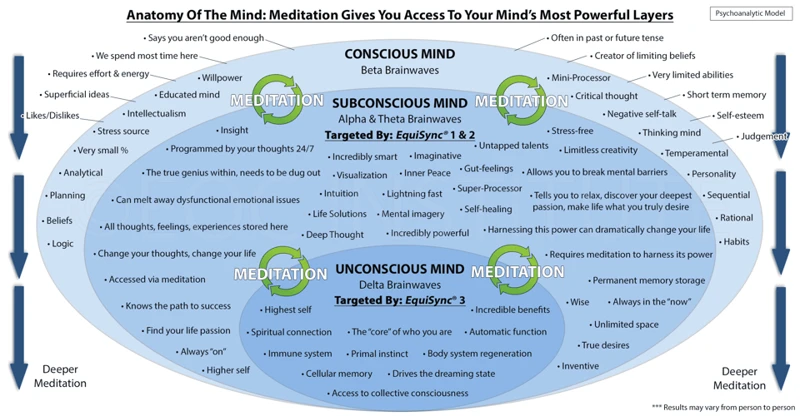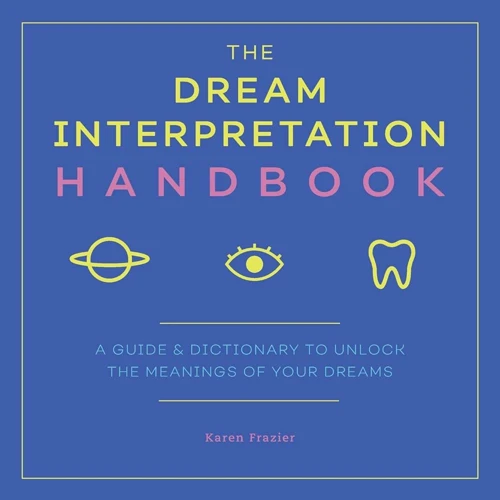Do you ever wake up in the middle of the night, drenched in sweat, heart pounding, after experiencing a terrifying dream? Nightmares have a way of gripping our subconscious mind, leaving us feeling bewildered and fearful. But what exactly are nightmares? And what do they reveal about our inner thoughts and emotions? In this article, we will delve into the fascinating world of nightmares and explore how they serve as windows into our subconscious minds. We will unravel the symbolism behind these unsettling dreams and decipher their hidden meanings. We will discuss methods for analyzing and interpreting nightmares, as well as techniques for managing and controlling them. By the end of this article, you will gain a deeper understanding of nightmares and their connection to your innermost thoughts and feelings. So, prepare to embark on a journey into the mysterious realm of your subconscious mind.
Understanding Nightmares

Nightmares can be perplexing experiences that often leave us feeling bewildered and shaken. They are vivid and intense dreams that occur during the REM (Rapid Eye Movement) stage of sleep. What exactly are nightmares? They are vivid and intense dreams that often evoke feelings of fear, anxiety, or distress. Although nightmares are commonly associated with children, they can affect adults as well. Understanding nightmares requires recognizing that they serve as a doorway to our subconscious mind, offering a glimpse into our deepest fears and anxieties. The content of nightmares can vary greatly from person to person, but they often involve scenarios that involve threat, danger, or a sense of helplessness. By exploring the science behind nightmares and understanding their underlying causes, we can gain insights into the complexities of our subconscious mind. So, let’s dive deeper into the realm of nightmares and unravel the mysteries that lie within.
What Are Nightmares?
Nightmares are vivid and distressing dreams that can leave you feeling unsettled and anxious upon waking up. What exactly are nightmares? Nightmares are a type of dream that occurs during the REM (Rapid Eye Movement) stage of sleep. Unlike regular dreams, nightmares often evoke intense negative emotions such as fear, terror, or anxiety. They can be more vivid and immersive, making you feel like you are experiencing a real-life threat or dangerous situation. While the content of nightmares can vary widely from person to person, common themes include being chased, falling, being attacked, or experiencing a sense of helplessness. These dreams can also be accompanied by physical symptoms like an increased heart rate, sweating, or a feeling of panic. Nightmares can occur at any age, but they are particularly common in children. If you’re curious about the causes and effects of nightmares, you can check out our article on “Nightmares in Children: Causes and Help.” In the next sections, we will explore the role of symbolism in nightmares and delve deeper into interpreting their meanings.
Types of Nightmares
Nightmares come in various forms, each with its own unique characteristics and themes. Here are some of the most common types of nightmares:
1. Chase Nightmares: In this type of nightmare, you might find yourself being pursued by someone or something, often unable to escape. These dreams can evoke feelings of fear, stress, and anxiety as you desperately try to outrun your pursuer.
2. Falling Nightmares: Falling nightmares involve the sensation of plummeting from a great height. These dreams can leave you feeling helpless, anxious, and overwhelmed as you experience the intense fear associated with the lack of control over your descent.
3. Exam Nightmare: Many people have experienced the dreaded exam nightmare, where you find yourself unprepared and unable to answer questions during a crucial test. These dreams often reflect feelings of inadequacy, pressure, and a fear of failure.
4. Recurring Nightmares: Recurring nightmares are dreams that repeat themselves with similar themes or content. They can occur over an extended period and may indicate unresolved fears or traumas that need attention and healing.
5. Sleep Paralysis Nightmares: Sleep paralysis nightmares involve a frightening sensation of being awake but unable to move or speak. These nightmares often include hallucinations and can be associated with a sense of impending danger or malevolent presence in the room.
6. Demonic Nightmares: Demonic nightmares involve encounters with supernatural beings or entities, often causing terror and a sense of being physically and emotionally threatened.
It’s important to remember that the interpretation and significance of nightmares vary from person to person. While these are common types, individuals may have their own unique variations or experiences. Exploring the themes and emotions within nightmares can provide valuable insight into our subconscious fears and concerns, helping us to better understand ourselves and our experiences in waking life. For more information on the science behind nightmares, you can refer to this article.
Interpreting Nightmares

Nightmares have a symbolic language of their own, and interpreting them can unveil valuable insights into our subconscious mind. The role of symbolism in nightmares is crucial, as the frightening and unsettling imagery often represents deeper emotional or psychological meanings. Symbols in nightmares can vary widely, from being chased by a menacing figure to losing teeth or falling from great heights. These symbols may represent fears, anxieties, or unresolved traumas that reside within us. By deciphering these symbols and connecting them to our personal experiences, we can unravel the hidden messages that our subconscious mind is trying to convey. While each individual’s nightmares may have unique symbols and meanings, it is also important to be aware of common nightmares and their interpretations. Exploring the effect of medications on dreams and nightmares can also provide valuable insights, as certain medications and substances can influence the content and intensity of our dreams. So, let’s continue our journey of understanding by delving into the symbolic language of nightmares.
The Role of Symbolism
Symbolism plays a crucial role in the interpretation of nightmares. Dreams are often a reflection of our subconscious mind, and the symbols that appear in nightmares carry deep psychological meanings. Symbolism can be interpreted as a language of the subconscious, as it allows our minds to communicate complex emotions and experiences through abstract representations. When we pay attention to the symbolism in our nightmares, we can uncover hidden messages and gain a better understanding of ourselves.
One common symbolic element in nightmares is the presence of monsters or creatures. These frightening beings could represent our deepest fears or unresolved traumas. Monsters often symbolize the parts of ourselves that we find difficult to confront or acknowledge. By facing these monsters in our dreams, we have an opportunity to confront and conquer our inner demons.
Another frequent symbol in nightmares is falling, which can signify a loss of control or a sense of insecurity. Falling may represent the fear of failure or the anxiety of not measuring up to expectations. It can also symbolize a lack of stability or support in our waking lives. Exploring the feelings and circumstances surrounding the falling symbol in a nightmare can provide insights into areas of our lives where we may need to regain balance and control.
Symbols in nightmares are highly personal and can vary from person to person. A snake in one person’s dream, for example, can represent healing and transformation, while for another person, it may symbolize deceit or danger. It is essential to consider personal experiences, cultural influences, and individual associations when interpreting the symbolism in nightmares.
To analyze the role of symbolism in nightmares, keeping a dream journal can be highly beneficial. By recording the symbols, emotions, and narratives of our dreams, we can identify recurring patterns and symbols that may provide valuable insights into our subconscious desires and fears. Creating a dream dictionary that documents our personal interpretations of symbols can help us further analyze and understand the messages our subconscious mind is trying to convey.
Symbolism is a significant aspect of nightmares. By examining the symbols that appear in our dreams, we can unlock the hidden messages and gain a deeper understanding of our subconscious mind. Whether it’s monsters representing our fears or falling symbolizing a sense of insecurity, deciphering the symbolism in nightmares can lead to personal growth and self-awareness.
Common Nightmares and Their Meanings
Common nightmares can reveal a wealth of information about our subconscious mind, shedding light on hidden fears, anxieties, and unresolved emotions. By understanding the meanings behind these nightmares, we can gain valuable insights into ourselves. One common nightmare that many people experience is the sensation of falling. This dream often indicates a lack of control or instability in one’s waking life. It may be a reflection of feeling overwhelmed or out of control in a particular situation. Another prevalent nightmare revolves around being chased. Being pursued in a dream can symbolize running away from unresolved problems or avoiding confrontation. It may be a manifestation of anxiety or a fear of being pursued by one’s own thoughts or emotions. Another troubling nightmare is being trapped or unable to move. This dream often signifies a sense of being stuck in a particular situation or feeling powerless in one’s waking life. It could be a representation of feeling trapped in a job, a relationship, or a personal circumstance. Additionally, dreams of being unprepared for an important event, such as an exam or presentation, can reflect underlying feelings of inadequacy or a fear of failure. These dreams can prompt us to explore any areas of our life where we may lack confidence or feel unprepared. It is important to remember that while these interpretations provide general insights, the meanings of nightmares can vary from person to person. To truly understand the unique significance of our nightmares, deep introspection and personal reflection are required. By analyzing and deciphering the symbolism of common nightmares, we can unravel the messages our subconscious mind is attempting to convey.
Exploring the Subconscious Mind

When we dream, we are given a glimpse into the enigmatic realm of our subconscious mind. Our dreams, including nightmares, serve as mirrors reflecting our deepest desires, fears, and unresolved emotions. How do dreams reflect the subconscious? Our subconscious mind holds a vast reservoir of thoughts, memories, and experiences that may be hidden from our conscious awareness. Through dreams, our subconscious mind finds an avenue for expression, often using symbolism and metaphors to convey its messages. Dreams are intricate puzzles that require interpretation to unlock their true significance. Analyzing nightmares becomes pivotal as it helps us unravel the underlying meanings and gain insights into our innermost thoughts and emotions. Recognizing the importance of exploring the subconscious mind through dreams enables us to better understand ourselves and navigate the complexities of our own psyche. So, let’s embark on a journey together, delving into the fascinating depths of our subconscious through the exploration of dreams and nightmares.
How Dreams Reflect the Subconscious
Dreams have long been regarded as a window into the subconscious mind, providing a unique opportunity to explore our deepest thoughts, desires, and fears. But how exactly do dreams reflect the subconscious?
1. Symbols and Metaphors: Dreams often communicate with us through symbolic imagery. The subconscious mind uses symbols and metaphors to convey deeper meanings that may not be readily apparent. For example, dreaming about being chased may symbolize a sense of running away from unresolved issues or avoiding confrontation in waking life. Analyzing the symbols and metaphors in dreams can offer valuable insights into our subconscious thoughts and emotions.
2. Repressed Thoughts and Emotions: Dreams can also reflect repressed thoughts and emotions that we may not be consciously aware of. Our subconscious mind has the ability to process and express these thoughts and emotions during sleep when our conscious defenses are lowered. Through dreams, repressed memories, unresolved conflicts, and unexpressed emotions may surface, providing an opportunity for healing, self-reflection, and personal growth.
3. Unconscious Problem-Solving: Dreams can serve as an arena for problem-solving, allowing the subconscious mind to explore solutions to challenges or dilemmas we may be facing. It is not uncommon to wake up from a dream with a sudden realization or a fresh perspective on a difficult situation. Our subconscious mind works tirelessly during sleep to process information and find innovative solutions to problems, even ones we may not be actively aware of.
4. Archetypes and Collective Unconscious: Dreams can tap into archetypal symbols and themes that are deeply ingrained in the collective unconscious. These archetypes, such as the hero, the shadow, or the wise old man, represent universal human experiences and have a powerful influence on our dreams. Exploring these archetypal elements in our dreams can provide insights into our shared humanity and the collective aspects of our subconscious.
Dreams reflect the subconscious mind through symbols, metaphors, repressed thoughts and emotions, unconscious problem-solving, and the influence of archetypes. By paying attention to our dreams, analyzing their content, and exploring their deeper meanings, we can gain a better understanding of our subconscious thoughts, desires, and fears, leading to enhanced self-awareness and personal growth.
The Importance of Analyzing Nightmares
Analyzing nightmares plays a crucial role in unraveling the deeper meanings and messages hidden within these unsettling dreams. The importance of analyzing nightmares lies in the fact that they provide a unique window into our subconscious mind, allowing us to gain insights into our fears, anxieties, and unresolved emotions. Nightmares can serve as powerful symbols, reflecting aspects of our lives and experiences that we may not be consciously aware of. By analyzing recurring themes, symbols, and emotions within our nightmares, we can begin to understand the underlying issues that may be causing distress in our waking lives. It allows us to confront and address these unresolved issues, ultimately leading to personal growth and healing.
Analyzing nightmares also provides an opportunity for self-reflection and self-discovery. By delving into the symbolism and meaning behind our dreams, we can gain a deeper understanding of our own psyche. It can uncover patterns of thought, recurring themes, and hidden desires that may be influencing our thoughts and behaviors in our waking life. Through this process, we can identify areas of our life that may need attention or changes in order to achieve emotional well-being.
Furthermore, analyzing nightmares can be a therapeutic tool for gaining control over our fears and anxieties. By shining a light on our deepest fears within the safety of our dreams, we can gradually desensitize ourselves to these issues and develop coping mechanisms. This helps us to confront and overcome our fears, leading to increased resilience and emotional strength.
In summary, analyzing nightmares is of utmost importance because it allows us to tap into the rich source of symbolism and meaning that our subconscious mind provides. By unraveling the hidden messages within our dreams, we can gain insights, promote self-reflection, and develop strategies for personal growth and healing. So, next time you wake up from a particularly intense nightmare, take a moment to analyze it and explore the profound revelations it may hold.
Methods for Analyzing Nightmares

Analyzing nightmares can provide valuable insights into our subconscious mind, helping us uncover hidden emotions, fears, and unresolved issues. So, what methods can we utilize to delve deeper into the meaning behind these unsettling dreams? One effective method is keeping a dream journal, where you can record your nightmares immediately upon waking. This helps capture the details and emotions while they are still fresh in your mind. By examining patterns, symbols, and recurring themes in your nightmares, you may start to uncover underlying messages and connections to your waking life. Another valuable approach is seeking the guidance of a dream therapist, who specializes in interpreting dreams and can provide an objective perspective. They can help you analyze the symbols, themes, and emotions present in your nightmares, drawing connections to your personal experiences and offering guidance for personal growth and healing. By actively engaging in the analysis of your nightmares, you can gain a deeper understanding of your subconscious mind and work towards resolving inner conflicts.
Dream Journals and Recording Nightmares
Dream Journals and Recording Nightmares are powerful tools that can aid in analyzing and understanding the deeper meanings behind our dreams. Keeping a Dream Journal involves recording your dreams as soon as you wake up, capturing every detail and emotion you can remember. By consistently recording your nightmares in a journal, you create a valuable resource for analysis. Why is this important? Dreams can be easily forgotten, and details may fade quickly upon waking up. Recording nightmares allows you to preserve the vividness and accuracy of the dream, ensuring that no crucial elements are lost. In your Dream Journal, jot down specific symbols, themes, and emotions from each nightmare. Over time, patterns may emerge, giving you insight into recurring themes or unresolved issues in your life. Consider using a table or a list to organize your journal entries. In the first column, write down the date of the nightmare. In the second column, describe the main elements of the dream, such as characters, locations, and events. In the third column, note the emotions you experienced during the nightmare. This structured approach facilitates a comprehensive analysis of your nightmares and helps you identify key symbols and recurring patterns. Additionally, referencing your Dream Journal during therapy or discussions with a dream therapist can provide a deeper understanding of your subconscious mind and aid in the interpretation of your nightmares. So, grab a notebook and pen, keep it by your bedside, and embark on a journey of self-discovery through the practice of recording your nightmares.
Working with a Dream Therapist
Working with a Dream Therapist can be a valuable and transformative experience for those seeking to explore the deeper meanings behind their nightmares. Dream therapists are trained professionals who specialize in analyzing and interpreting dreams to gain insights into a person’s subconscious mind. When it comes to nightmares, a dream therapist can provide guidance and support in deciphering the underlying messages and emotions embedded within these unsettling dreams. Here are some key aspects of working with a dream therapist:
1. Creating a safe and supportive environment: Dream therapists create a safe and non-judgmental space where individuals can openly share their nightmares and discuss their emotional reactions. This supportive environment allows for a deeper exploration of the dream’s symbolism and personal significance.
2. Interpreting dream symbolism: Dream therapists are skilled in understanding the symbolism and imagery present in dreams. They can help individuals identify recurring themes, symbols, and metaphors within their nightmares, offering insights into their subconscious thoughts, fears, and unresolved issues.
3. Exploring dream themes and patterns: By examining recurring themes and patterns in a person’s nightmares, dream therapists can uncover subconscious patterns and help individuals understand their significance. This exploration can lead to a greater understanding of one’s emotions, relationships, and personal journey.
4. Processing and integrating emotions: Nightmares can often bring up intense emotions and unresolved traumas. Dream therapists provide a safe space for individuals to process and integrate these emotions, allowing for healing and growth. Through discussions and therapeutic techniques, individuals can gain a deeper understanding of themselves and their experiences.
5. Offering coping strategies: Dream therapists can provide individuals with practical techniques to manage and cope with nightmares. These techniques may include relaxation exercises, visualization techniques, or dream re-scripting to transform the content and outcome of nightmares.
Working with a dream therapist can be a collaborative and empowering process, enabling individuals to gain valuable insights into themselves and make positive changes in their lives. It is important to find a qualified and experienced dream therapist who resonates with you and creates a safe space for exploration. Remember, the journey of working with a dream therapist can be transformative, leading to a deeper understanding of your nightmares and a greater connection to your subconscious mind.
Managing Nightmares
Nightmares can be distressing and impact our overall well-being, but there are strategies we can employ to manage and mitigate their effects. Nightmare prevention techniques involve creating a conducive sleep environment, such as maintaining a regular sleep schedule, practicing relaxation techniques before bed, and avoiding substances like alcohol and caffeine that can disrupt sleep patterns. Additionally, using lucid dreaming techniques can help us take control of our nightmares while we are experiencing them. By becoming aware that we are dreaming, we can consciously guide the dream narrative and transform the frightening scenario into something more positive or neutral. Another approach to managing nightmares is through dream work and healing trauma. Engaging in therapy with a dream therapist or counselor can help us explore the symbolic meaning behind our nightmares, process unresolved emotions, and work towards healing past traumas. By adopting these strategies and techniques, we can empower ourselves to take charge of our nightmares and promote a more peaceful and restorative sleep experience.
Nightmare Prevention Techniques
Preventing nightmares can greatly improve the quality of your sleep and alleviate the distressing emotions they bring. Thankfully, there are several effective techniques you can implement to minimize the occurrence of nightmares. One of the primary steps in nightmare prevention is maintaining a healthy sleep routine. Establishing a consistent sleep schedule and ensuring you get an adequate amount of sleep each night can help regulate your sleep patterns and reduce the likelihood of nightmares. Additionally, it is important to create a relaxing and peaceful sleep environment. Avoiding stimulating activities such as watching intense or scary movies before bed, as well as minimizing exposure to electronic screens, can help calm your mind and promote restful sleep. Another useful technique is engaging in relaxation exercises before bedtime, such as deep breathing, meditation, or listening to soothing music. These practices can help relax your mind and body, making it easier to enter a state of deep and uninterrupted sleep. Managing stress levels is also crucial in preventing nightmares. Finding healthy coping mechanisms for stress, such as exercise, journaling, or talking to a trusted friend or therapist, can help reduce anxiety and prevent it from manifesting in your dreams. Lastly, avoiding certain substances like alcohol, caffeine, and heavy meals before bed can help regulate your sleep and minimize the occurrence of nightmares. Implementing these nightmare prevention techniques can lead to more peaceful and restorative nights, allowing you to wake up feeling refreshed and ready to conquer the day.
Using Lucid Dreaming to Control Nightmares
Lucid dreaming is a powerful technique that can be utilized to gain control over nightmares and transform them into more positive experiences. Using lucid dreaming to control nightmares involves becoming aware that you are dreaming while in the midst of a nightmare, enabling you to actively alter the dream content and outcomes. Lucid dreaming allows you to consciously navigate the dream world, giving you the ability to confront and overcome the fears and anxieties that manifest in your nightmares. To achieve lucid dreaming, it is essential to practice reality checks during waking hours, such as regularly questioning whether you are dreaming or not. By incorporating reality checks into your daily routine, you can increase your chances of becoming aware of your dream state while in the midst of a nightmare. Once you become lucid within a nightmare, you can employ various techniques to regain control. One approach is to mentally reaffirm that you are in control and that nothing in the dream can harm you. Another method is to confront the source of your fear head-on, transforming it into something more positive or benign. Additionally, you can use visualization and intention-setting to modify the dream environment or summon helpful dream characters or objects. The key to using lucid dreaming to control nightmares is practice and persistence. Over time, with dedicated effort, you can become proficient at recognizing and navigating your nightmares, transforming them into opportunities for growth and empowerment.
Healing Trauma through Dream Work
Traumatic experiences can leave a lasting impact on our minds and bodies, causing deep emotional wounds that may take time and effort to heal. For individuals who have experienced trauma, dream work can be a powerful tool for healing and growth. Dreams have the ability to bring unresolved emotions and memories to the surface, allowing individuals to process and make sense of their traumatic experiences in a safe and controlled environment. During dream work, a person actively engages with their dreams and explores the symbols, images, and emotions that arise. Through this process, they can gain insight, release repressed feelings, and find resolution. By working with a trained therapist or using self-reflection techniques, individuals can navigate their dreamscape and utilize them as a valuable resource in their healing journey. This may involve techniques such as dream journaling, discussing dreams in therapy sessions, or participating in dream group sessions where individuals can share and gain support from others who have experienced trauma. Through dream work, individuals can gradually unravel the layers of their trauma, find meaning and understanding, and ultimately move towards healing and recovery. It is important to note that dream work alone may not be sufficient for trauma healing, and individuals should always seek the guidance of a qualified professional to ensure a safe and supportive therapeutic process.(source)
Conclusion
The of this exploration into nightmares reveals the profound connection between these unsettling dreams and our subconscious minds. Nightmares offer a unique window into our deepest fears, anxieties, and unresolved emotions. They serve as a pathway to self-discovery and self-reflection, allowing us to gain a better understanding of ourselves on a profound level. By analyzing and interpreting our nightmares, we can uncover hidden messages and symbols that provide valuable insight into our subconscious. Whether through keeping a dream journal, seeking the guidance of a dream therapist, or utilizing techniques like lucid dreaming, we have the power to manage and even control our nightmares. By doing so, we can promote healing, resolve past traumas, and achieve a sense of inner peace. The journey into the realm of nightmares may be filled with uncertainty, but it is ultimately a transformative experience that can lead to personal growth and self-awareness. So, embrace the mysteries of your subconscious mind and embark on the path of understanding and harnessing the power of your nightmares.
Frequently Asked Questions
What causes nightmares?
Nightmares can be caused by a variety of factors, including stress, anxiety, trauma, certain medications, sleep disorders, and even certain foods. Understanding the root cause of your nightmares can help in managing and preventing them.
Do nightmares have any psychological significance?
Yes, nightmares have psychological significance. They can provide valuable insights into our subconscious mind, revealing our fears, unresolved emotions, and internal conflicts. Analyzing and interpreting nightmares can contribute to personal growth and self-discovery.
Can nightmares be a symptom of mental health disorders?
Yes, nightmares can be symptomatic of mental health disorders such as post-traumatic stress disorder (PTSD), anxiety disorders, and depression. If your nightmares are affecting your daily life and well-being, it is recommended to seek professional help.
Are recurring nightmares common?
Recurring nightmares are relatively common and often indicate unresolved issues or traumas. These repetitive dreams may continue until the underlying emotional or psychological problems are addressed and resolved.
Can nightmares be influenced by what we watch or read before bed?
Yes, the media we consume before bed can influence our dreams, including nightmares. Watching or reading content that is particularly intense, disturbing, or fear-inducing can increase the likelihood of experiencing unsettling dreams.
Can nightmares be beneficial in any way?
While nightmares can be distressing, they can also have beneficial aspects. Nightmares can act as a form of emotional release, allowing us to process and confront our deepest fears. They can also serve as warnings, urging us to pay attention to certain aspects of our lives that may need addressing.
Is it possible to control or change the outcome of a nightmare?
With practice and lucid dreaming techniques, it is possible to gain some control over nightmares. Lucid dreaming involves becoming aware that you are dreaming and being able to manipulate the dream to your advantage, potentially changing the outcome of a nightmare.
Can nightmares be a result of unresolved trauma?
Yes, nightmares can often be linked to unresolved trauma. Traumatic experiences can deeply impact the subconscious mind, leading to recurring nightmares that reflect the unresolved emotions and memories associated with the trauma.
Should I keep a dream journal to analyze my nightmares?
Keeping a dream journal can be immensely helpful for analyzing nightmares. Writing down your dreams as soon as you wake up can help you remember the details and uncover patterns and symbolism that may provide insights into the meaning behind your nightmares.
When should I seek professional help for my nightmares?
If your nightmares are causing significant distress, affecting your daily functioning, or interfering with your overall well-being, it is advisable to seek professional help. A therapist or dream specialist can provide guidance, support, and specialized techniques to help you manage and overcome your nightmares.








